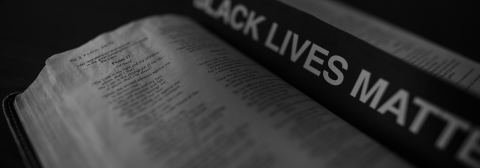
On Aug. 9, 2014, Michael Brown was killed by Ferguson, Mo., police officer Darren Wilson. In the year that followed, the #BlackLivesMatter movement challenged our nation — and our faith communities — to actively resist systemic racism. But "the church cannot be challenged without also changing our theology," Ryan Herring writes in Sojourners (Sept/Oct 2015). So we asked people of faith: how has the Black Lives Matter movement shaped your theology?